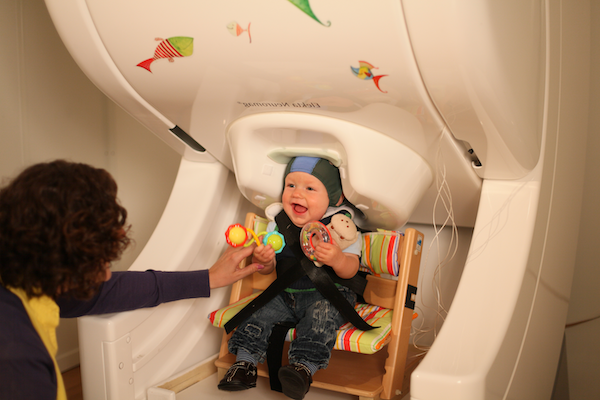Our Story
SparkLing™ is rooted in over 50 years of groundbreaking scientific research on how children learn language.



I-LABS faculty were the first in the world to record brain activity in awake infants as they listened to various languages while in the MEG brain imaging machine.
What has emerged from these findings is that children’s language learning is robust, given the right conditions. Research shows that when language between an educator and child happens in the context of a play-based, socially interactive setting, it kindles language learning processes in the brain.
The SparkLing™ Method encapsulates and distills these major research findings into a core set of principles. These principles have been scientifically proven to increase second language learning in both monolingual Spanish-speaking and monolingual English-speaking preschool-aged children. Given the success of this method, SparkLing was developed to bring these science-based strategies to educators everywhere with classroom activities, lesson plans, and educator support tools.
The minds behind SparkLing™ are among the leading scientists studying language development and multilingualism: Patricia Kuhl, Ph.D. and Naja Ferjan Ramírez, Ph.D.


Leadership
Dr. Patricia Kuhl is internationally recognized for her research on early language learning and multilingual brain development. As the Co-Director of the Institute for Learning & Brain Sciences (I-LABS) at the University of Washington, she leads an interdisciplinary center dedicated to discovering the fundamental principles of human learning, with a special emphasis on early learning and brain development. Dr. Kuhl is a member of the National Academy of Sciences, the premier US scientific organization, and has been invited to present at the White House and to Congressional leaders on multiple occasions. Her TEDx talk, “The Linguistic Genius of Babies” has been viewed over 4.5 million times on YouTube.
Dr. Naja Ferjan Ramírez is a linguist and cognitive scientist. She holds an endowed chair in Language Acquisition and Multilingualism in the Department of Linguistics at the University of Washington and directs the Language Development and Processing (LDP) Lab. Her work centers on how diverse environments impact language learning and processing in infancy and early childhood.






